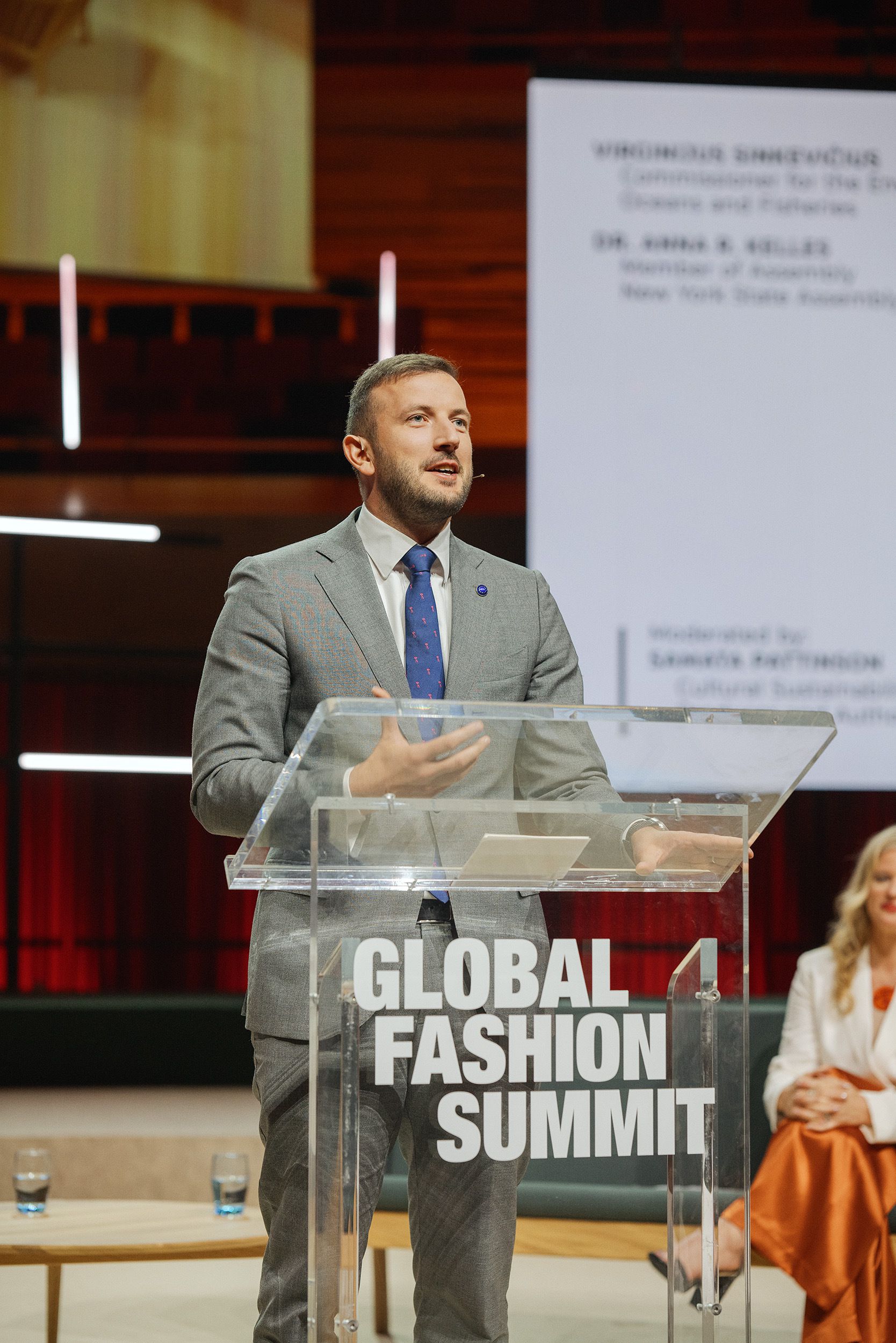
Fashion’s age of under regulation is ending as the EU looks to stop throwaway fast fashion, European Union environment commissioner Virginijus Sinkevičius said in an interview on the sidelines of the Global Fashion Summit in Copenhagen on Tuesday.
“To be very honest, fashion is the only industry which has escaped any sort of regulation,” said Sinkevičius. “But the toll that it puts on natural resources is large … This linear model in which businesses now compete is, unfortunately, getting us nowhere.”
Sinkevičius’ very presence is a sign of the mounting regulatory pressure on the industry. He is one of a number of policymakers attending the sustainability-focused event for the first time this year.
Europe has been pressing particularly hard to step up oversight of the industry, publishing a sustainable textile strategy last year that laid out a policy roadmap designed to overhaul the way the industry designs, markets and disposes of products.
It’s a particular area of focus because textiles count among the bloc’s highest impact sectors in terms of environmental impact and consumption — an issue that’s been exacerbated by a steep increase in the amount of clothes the average European consumer buys and discards over the last 20 years.
“All these piles of waste, they don’t just disappear. They go somewhere, they pollute somewhere,” said Sinkevičius.
The goal of Europe’s policy moves is to do away with fast fashion, which means extending how long clothes are kept in circulation, he added. Over the coming months, policymakers are expected to provide further details on proposed design requirements to make clothes longer-lasting and more repairable, a likely ban on the destruction of unsold goods, requirements for brands to take back old clothes to facilitate more recycling and labelling rules intended to help consumers make better choices.
“We need to design clothes to serve us longer. And if we are tired of them, if we wear them once or twice and we don’t want to wear them again, there has to be a second life for them,” Sinkevičius said. Consumers also have a responsibility to shift their behaviour. “At the moment, with each of us wasting 12 kilos of clothes every year; that’s absolutely unacceptable,” he said.



